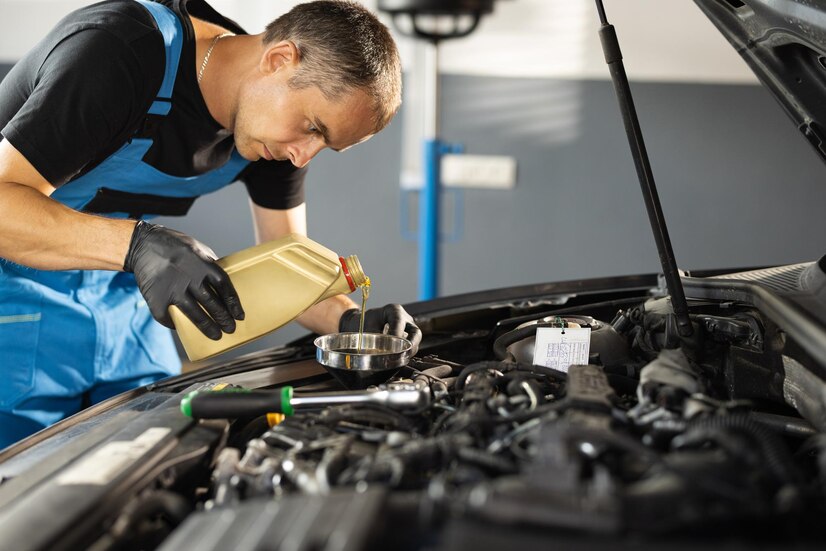8 Surprising Factors That Impact Trade Car Valuation
Trade car valuation is a critical step in the process of selling or trading your vehicle. It determines the monetary worth of your car based on various factors such as its make, model, age, condition, and market demand.
There are a couple of lesser-known factors that can also affect your Trade Car Valuation. Understanding and addressing them can help you get a better deal on your trade car.
So, let’s explore these amazing factors and how they can affect the valuation of your trade car:
- Aftermarket Upgradation
While some aftermarket modifications can enhance the look and value of a car, others may have contrasting effects. It’s essential to consider how any modifications you’ve made to your trade car might impact its valuation.
Any performance upgrades or cosmetic enhancements that are professionally installed and sought after by buyers can increase the value of your vehicle. However, any upgrade that has been poorly executed or degrades the car’s original appeal may reduce its value. While seeking a valuation, please be sure to reveal any modifications or changes made to upgrade its look.
- Emerging Market Trends
The current market conditions can have a huge impact on your trade car valuation. Factors such as supply and demand, consumer preferences, and economic trends can influence the price that buyers are willing to pay for your vehicle.
For example, if there is a high demand for fuel-efficient cars due to rising gas prices, you may receive a higher valuation for a hybrid or electric vehicle. Likewise, seasonal fluctuations and changes in the automotive market can affect the price of different car models.
You should be aware of market trends. This can help maximize your trade car appraisal.
- The History Report of Your Vehicle
The most important key factor that can influence the valuation of your trade car is its vehicle history report. This report provides prospective buyers and dealers with major information about the car’s past.
It includes any accidents, title issues, or any other red flags. A vehicle with a clean history report can foster confidence in buyers and dealers. This leads to a higher estimate for your car.
A history report of your car reveals any past damage or problems that may reduce the perceived value of the vehicle. Therefore, it’s important to get a comprehensive vehicle history report and fix any issues before applying for a valuation.
- Maintenance Records
One common factor that we overlook is maintenance records. It can have a huge impact on the valuation of your trade car.
A well-documented and regularly serviced vehicle is likely to deliver a higher value than one with a questionable maintenance record. Buyers and dealers prefer cars that have been well-maintained as they are expected to be more reliable and have lower chances of unforeseen issues.
You should keep proper records of all maintenance and services in which you have invested. It can help you demonstrate reasonable care for your vehicle, ultimately increasing its value.
- Emotional Appeal
The most astonishing factor that can influence your trade car valuation is its emotional appeal. While this may seem exclusive, the emotional connection that buyers feel towards a car can influence the price they’re willing to pay.
Attributes such as brand reputation, sentiments, and individual choices can contribute to the perceived value of a vehicle. For instance, a classic car that brings childhood memories of the buyer’s youth may dictate a higher valuation than a comparable model with no sentimental value. Understanding the emotional appeal of your car and highlighting its unique features and history can help you maximize its valuation.
- Area or Location
You may not believe it, but the market and location where you trade your vehicle have a huge impact on its valuation. Different regions may have varying levels of demand for certain types of vehicles and differences in average prices.
Climate, terrain, and local preferences are some other aspects that can influence the price of your car. For illustration, a convertible car may command a higher price in a sunny coastal area than in a cold northern climate.
Having an awareness of the local market conditions can help you set a realistic valuation for your car and negotiate effectively with buyers or dealers.
- Color
The color of your car may seem like a minor detail, but it can affect its valuation. Certain colors are more popular and in demand than others, which can influence resale value.
Buyers are inclined towards neutral colors such as black, white, and silver, which retain better value in comparison to other colors. Moreover, certain colors may be associated with specific demographics or market segments.
This affects their desirability in the resale market. No matter which color you prefer at the time of purchase, it could affect its valuation during the trade.
- Mileage and How Old Your Vehicle Is Matter
Age and mileage are two of the most common things that affect a car’s value, but there are some interesting details to keep in mind. For instance, a car with a lower mileage won’t always fetch a higher price because it’s showing signs of wear and tear.
Likewise, newer cars aren’t necessarily worth more. In addition to your car’s age and mileage, it’s important to think about the overall condition and value of your vehicle.
Summing It Up:
Trade car valuation is a complicated process that takes into account a broad range of factors, both evident and stunning. By understanding these surprising factors and addressing them proactively, you can increase the worth of your trade car and get a great deal when selling or trading it in. If you keep these factors in mind and showcase your vehicle in its best condition, you’ll be able to get a fair and reasonable price for your trade vehicle.






